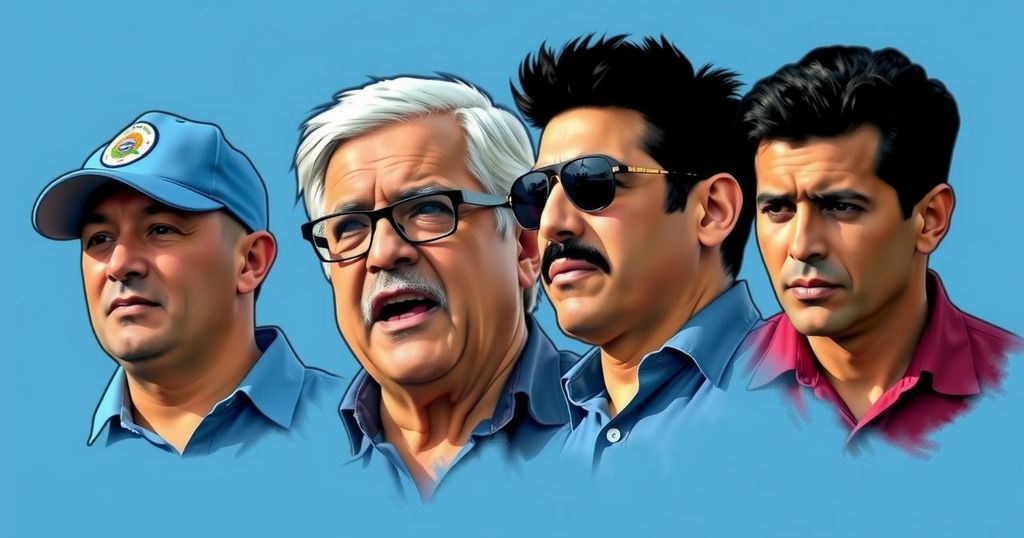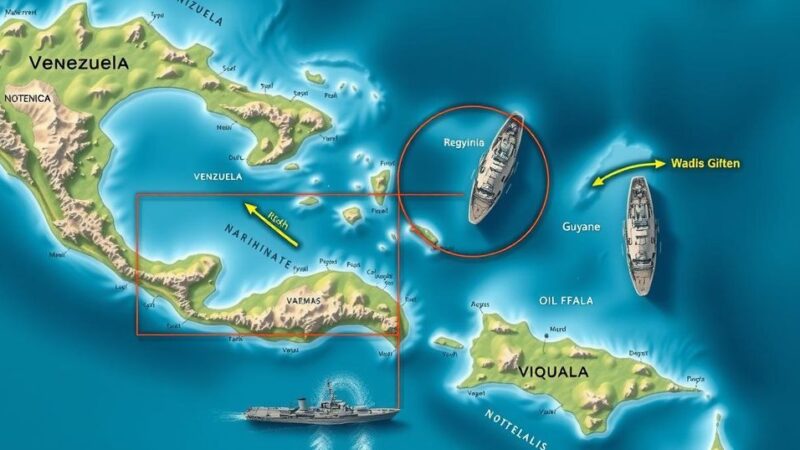Six Venezuelan opposition figures sheltered in the former Argentine embassy are experiencing escalating harassment from the Maduro government, prompting calls for diplomatic intervention by Argentina, Brazil, and the OAS. Their situation underscores the tensions following Venezuela’s disputed presidential election in July 2024, as the Maduro government continues to resist external pressure for their safe passage amid allegations of human rights abuses.
The political landscape in Venezuela has grown increasingly volatile as six opposition figures residing in the former Argentine embassy in Caracas report significant harassment and threats to their safety. Their experiences, which include persistent surveillance, disruptions in basic utilities, and the arrests of embassy staff, have drawn urgent calls for intervention from Argentina, Brazil, and the Organization of American States (OAS). These developments underscore the turmoil following Venezuela’s disputed presidential election in July, where both current President Nicolás Maduro and opposition leader María Corina Machado claim victory, resulting in heightened tensions and strife in the country.
The opposition figures, who have taken refuge in the diplomatic compound since March 2024, are facing severe restrictions. Initially protected by Argentina, the responsibility for their safety was transferred to Brazil, but Maduro’s administration revoked this authority, exacerbating an already precarious situation. Magalli Meda, a key member within the group, vividly described the oppressive conditions they endure, marked by intrusive surveillance and intentional service disruptions that hinder their everyday life. Recently, the arrest of a long-standing staff member at the Argentine embassy has raised further alarms regarding the safety and treatment of opposition members.
In light of these escalating threats, regional powers have intensified their diplomatic efforts. Argentina’s government has been outspoken in advocating for the safe passage of the opposition figures, with support from numerous OAS member states urging an end to harassment by the Venezuelan government. Brazil has also positioned itself as a facilitator in negotiations, with President Luiz Inácio Lula da Silva actively working to mediate the complex political impasse in Venezuela. Despite ongoing assurances regarding the compound’s status, the on-ground situation reflects a troubling disconnect between rhetoric and reality, necessitating immediate attention from the international community.
The backdrop of these events includes the contentious presidential election held on July 28, 2024, which has deepened political divisions within Venezuela. Immediate claims of electoral fraud were made, with the National Electoral Council declaring Maduro the victor without reliable vote counts. In contrast, the opposition, through independent monitoring, contended that their candidate, Edmundo González, legitimately won the election. The standoff has amplified it’s existing tensions, leading many opposition members to seek refuge in international diplomatic spaces to escape authoritarian reprisals.
The ongoing crisis in Caracas signifies a larger regional dilemma, as the Maduro government faces increasing isolation due to their oppressive tactics against political dissent. Concerns regarding human rights violations and international law continue to mount, particularly regarding the treatment of foreign and diplomatic security. There is a pressing need for coordinated diplomatic action among regional governments to address the immediate situation, which has lethally underscored the dire humanitarian costs of Venezuela’s political strife.
Ultimately, the plight of the six opposition members encapsulates the severe challenges faced by those opposing the Maduro government. Their situation demands an urgent response from both local and international stakeholders to uphold human rights and protect political dissidents from retribution. As the crisis unfolds, vigilance and proactive measures are paramount to safeguard not only the immediate needs of these individuals but also the broader quest for democracy and justice in Venezuela.
The ongoing political crisis in Venezuela has been exacerbated by the contested presidential election held in July 2024, where allegations of fraud have surfaced on both sides, with Nicolás Maduro and opposition leader María Corina Machado each claiming victory. The election’s fallouts have pushed several opposition figures to seek refuge in the former Argentine embassy in Caracas, where they face ongoing harassment and threats. Regional responses, particularly from Argentina and Brazil, have intensified as they advocate for the safe passage of these politically vulnerable individuals amidst a backdrop of escalating violence and repression.
The situation of the six Venezuelan opposition figures seeking refuge in the former Argentine embassy represents a critical intersection of human rights and political survival amid rampant authoritarianism. As regional powers mobilize support for their safety, the international community must maintain a focused approach to uphold democratic norms and provide necessary humanitarian aid in these dire circumstances. Without immediate and consistent action, the safety of these opposition members remains perilously in jeopardy, reflecting the broader struggle for freedom within Venezuela.
Original Source: www.newslooks.com






